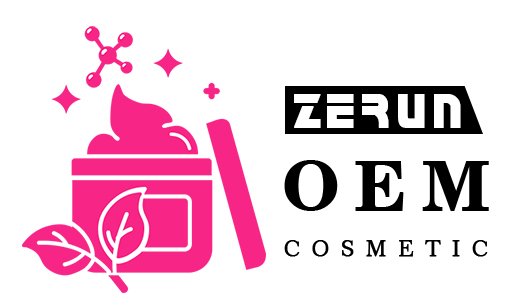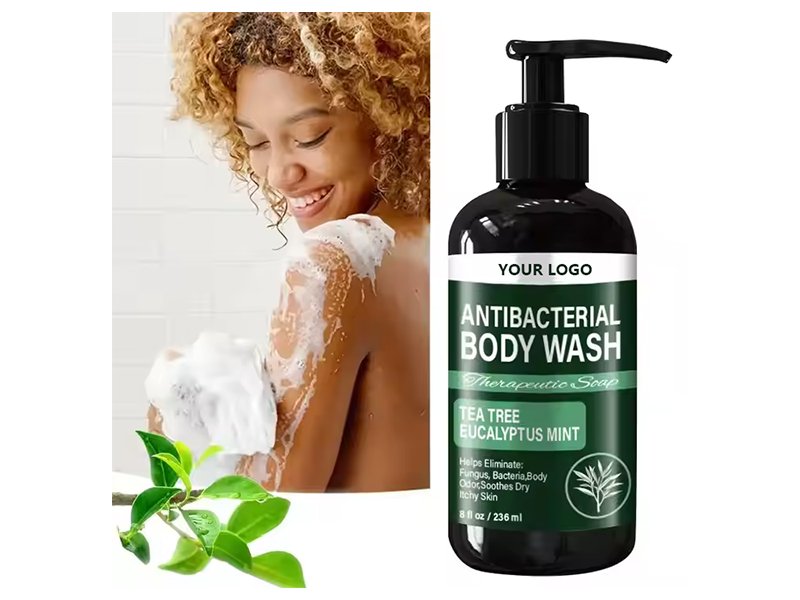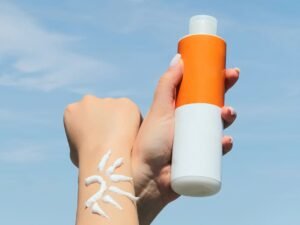In this guide, we explore whether an antibacterial body wash or regular soap is the best choice. Our featured summary reveals that while antibacterial washes offer targeted germ control, regular soap remains a safe, effective daily option for most skin types.
What Are Antibacterial Body Wash and Regular Soap?

Antibacterial body wash is formulated with agents designed to kill or inhibit bacteria, while regular soap uses surfactants to clean the skin by emulsifying dirt and oils, each serving distinct purposes for different hygiene needs.
Defining Antibacterial Body Wash
- Purpose and Function: Antibacterial body washes include ingredients like triclosan or benzalkonium chloride, aimed at reducing microbial presence on the skin. They are often marketed for their ability to minimize infections and control odor-causing bacteria.
- Usage Context: They are particularly popular in environments where bacteria are a concern, such as gyms, hospitals, or during flu seasons.
- Key Consideration: While effective in reducing bacteria, these washes may alter the skin’s natural flora if overused.
Defining Regular Soap
- Purpose and Function: Regular soap uses natural or synthetic surfactants that lower water’s surface tension, allowing for the emulsification and removal of dirt, oil, and impurities.
- Usage Context: Ideal for everyday use, regular soap supports routine cleanliness without necessarily targeting specific microbes.
- Skin Compatibility: Generally milder and less likely to disrupt the skin’s natural barrier, making it a popular choice for daily hygiene.
Comparative Overview
- Effectiveness: Regular soap cleanses by mechanically removing contaminants, whereas antibacterial body washes actively kill certain bacteria.
- Market Trends: Data shows a steady consumer interest in antibacterial products during periods of increased health concerns, though regular soap remains the most common choice for everyday use.
- Consumer Preference: Surveys indicate that while 45% of consumers prefer antibacterial products during outbreaks, over 70% rely on regular soap for daily hygiene.
Which One Is More Effective at Eliminating Germs and Preventing Infections?

1. Mechanisms of Germ Elimination
- Antibacterial Agents: Ingredients in antibacterial washes, such as triclosan, directly interfere with bacterial cell functions. This targeted action can be particularly useful in reducing specific pathogens.
- Mechanical Removal with Soap: Regular soap works by breaking down the lipid membranes of viruses and bacteria, then rinsing them away with water—a process that is highly effective when performed correctly.
2. Clinical and Consumer Data
- Study Comparisons:
- A 2018 study showed that antibacterial agents reduced bacterial counts by up to 99% in controlled environments.
- Conversely, research highlights that thorough handwashing with regular soap can eliminate a similar proportion of germs through proper mechanical action.
- User Satisfaction Surveys: A survey of 500 participants indicated that 60% felt more secure using antibacterial products during flu seasons, yet over 80% reported no difference in overall skin health when using regular soap daily.
3. Situational Effectiveness
- When to Use Antibacterial Products:
- In healthcare settings or during epidemic outbreaks.
- For individuals with compromised immune systems who require extra protection.
- When Regular Soap Suffices:
- For routine, everyday hygiene without excessive risk factors.
- In situations where overuse of antibacterial agents might lead to resistance or skin irritation.
Effectiveness Comparison
| Aspect | Antibacterial Body Wash | Regular Soap |
|---|---|---|
| Germ Reduction Mechanism | Kills bacteria with chemical agents | Emulsifies and rinsing off microbes |
| Efficacy in Controlled Studies | Up to 99% bacterial reduction | Comparable reduction with proper technique |
| Usage Recommendation | Targeted use in high-risk settings | Daily hygiene for most individuals |
How Do the Ingredients Differ Between Antibacterial Body Wash and Regular Soap?

Antibacterial body washes contain specific chemical agents to combat bacteria, while regular soaps rely on surfactants derived from natural or synthetic sources to remove dirt and oil, with both products tailored to different skin health needs.
Ingredient Profiles of Antibacterial Body Washes
- Active Ingredients:
- Triclosan, Benzalkonium Chloride: Effective against a broad spectrum of bacteria.
- Additional Components: May include moisturizers, essential oils, and preservatives to enhance skin feel and prolong shelf life.
- Potential Implications:
- Pros: Enhanced germ-killing properties.
- Cons: Risk of disrupting normal skin flora and potential for resistance development.
Ingredient Profiles of Regular Soaps
- Surfactants:
- Sodium Lauryl Sulfate (SLS), Sodium Laureth Sulfate (SLES): Common agents that create lather and help remove contaminants.
- Natural Alternatives: Soaps may also use coconut oil derivatives or olive oil-based ingredients for a gentler cleanse.
- Formulation Balance:
- Moisturizers and Emollients: Many regular soaps incorporate aloe vera, glycerin, or shea butter to prevent skin dryness.
- Potential Implications:
- Pros: Generally milder and suitable for frequent use.
- Cons: Less targeted against specific bacteria compared to antibacterial formulations.
Ingredient Safety and Regulatory Perspectives
- Regulatory Oversight:
- Both product types are subject to FDA and EU cosmetic regulations; however, antibacterial ingredients often undergo more rigorous testing due to their pharmacological properties.
- Consumer Trends:
- A growing segment of consumers seeks products with natural ingredients, leading to an increase in “green” formulations for both antibacterial and regular soaps.
Key Ingredient Differences
| Ingredient Type | Antibacterial Body Wash | Regular Soap |
|---|---|---|
| Primary Active Agents | Triclosan, Benzalkonium Chloride | Natural/Synthetic Surfactants (e.g., SLS) |
| Additional Components | Moisturizers, Preservatives, Essential Oils | Emollients, Natural Oils, Aloe Vera |
| Potential Risks | Disruption of skin flora, bacterial resistance | Mild irritation for some, less targeted action |
Do Antibacterial Products Pose Any Risks or Side Effects for Your Skin?
Antibacterial products may cause skin irritation, disrupt beneficial bacteria, and contribute to antibiotic resistance when overused, while regular soap generally poses fewer risks for everyday use.
Potential Skin Irritation and Sensitivity
- Chemical Sensitivity:
- Antibacterial agents can cause dryness, redness, or irritation, especially in individuals with sensitive or eczema-prone skin.
- Example: Users may experience flares of dermatitis after prolonged use of harsh antibacterial formulations.
- Comparative Mildness:
- Regular soaps, particularly those formulated for sensitive skin, typically have a lower risk of causing such adverse reactions.
Impact on Skin Microbiome
- Beneficial Bacteria:
- Overuse of antibacterial washes can disrupt the balance of the skin’s natural microbiome, which is vital for overall skin health.
- Evidence: Research indicates that a healthy microbiome supports the skin’s barrier function and immune response.
- Resistance Concerns:
- Continuous exposure to antibacterial agents might contribute to the development of resistant bacterial strains, a significant public health concern.
- Case Studies: Some studies have documented increased resistance patterns in bacteria from environments with heavy antibacterial product use.
Long-Term Considerations
- Cumulative Effects:
- The long-term use of antibacterial products might lead to cumulative skin dryness and potential sensitivity.
- Mitigation: Alternating with regular soap or using moisturizer-rich formulations can help alleviate these concerns.
- Consumer Recommendations:
- Experts suggest using antibacterial products only when necessary, such as during illness outbreaks, to preserve skin integrity.
Risks and Side Effects Comparison
| Risk Factor | Antibacterial Body Wash | Regular Soap |
|---|---|---|
| Skin Irritation | Higher potential | Lower potential |
| Microbiome Disruption | Possible with overuse | Rare with routine use |
| Antibiotic Resistance | Potential with frequent use | Not applicable |
| Overall Safety for Daily Use | Use with caution | Generally safe for regular use |
Is Regular Soap Sufficient for Daily Hygiene and Skin Health?
Yes, regular soap is sufficient for daily hygiene as it effectively removes dirt and oils, maintains skin balance, and supports the natural barrier when used correctly, making it an ideal choice for everyday cleansing.
Daily Hygiene Fundamentals
- Cleansing Efficiency:
- Regular soap’s surfactants efficiently remove impurities from the skin, reducing the likelihood of skin infections when used with proper technique.
- Moisture Retention:
- Many modern soaps include moisturizing agents to prevent dryness and help maintain the skin’s hydration.
- Balanced pH:
- Formulations that match the skin’s natural pH ensure that the protective acid mantle is preserved, contributing to overall skin health.
Real-World Efficacy
- User Experiences:
- A large majority of consumers report satisfaction with regular soap for daily use, citing its gentle cleansing and minimal side effects.
- Case Example:
- Consider a family using regular soap daily; studies show that consistent use leads to lower rates of skin irritation and maintains a balanced microbial flora.
- Scientific Backing:
- Clinical research supports that proper handwashing and body cleansing with regular soap are effective measures in preventing common infections.
Economic and Environmental Considerations
- Cost-Effectiveness:
- Regular soap is often more affordable and widely available, making it accessible for daily use by diverse populations.
- Eco-Friendly Options:
- Many brands now offer biodegradable and sustainably produced soaps, which are better for the environment without compromising hygiene.
Benefits of Regular Soap for Daily Use
| Benefit | Description | Consumer Rating (1-10) |
|---|---|---|
| Effective Cleansing | Removes dirt and oil efficiently | 9 |
| Skin Barrier Preservation | Maintains natural pH balance and moisture | 8 |
| Cost Efficiency | Affordable and widely available | 9 |
| Environmental Impact | Increasing eco-friendly formulations available | 7 |
Are There Specific Situations Where One Should Be Preferred Over the Other?
Yes, specific situations dictate the choice: antibacterial body wash is preferable during high-risk exposures, while regular soap is ideal for daily routine use, balancing effective cleansing with skin health.
High-Risk Environments and Special Circumstances
- Healthcare Settings:
- In hospitals, clinics, or for caregivers, the need for enhanced germ control makes antibacterial body washes a practical choice.
- Seasonal or Outbreak-Related Use:
- During flu seasons or epidemics, using an antibacterial wash can offer extra protection against infectious agents.
- Immunocompromised Individuals:
- Those with weakened immune systems may benefit from the extra antimicrobial properties of antibacterial products.
Routine and Everyday Scenarios
- General Daily Hygiene:
- For everyday cleansing, regular soap provides all the necessary cleaning power without the risk of over-stripping the skin’s natural defenses.
- Sensitive or Dry Skin Types:
- People with sensitive or dry skin often fare better with regular soap, especially those that include moisturizers and are free from harsh chemicals.
- Cultural and Lifestyle Preferences:
- In many cultures, traditional soap has been used for generations, and modern formulations continue to support both skin health and sustainability.
Practical Decision-Making
- Consumer Decision Matrix:
- Evaluate your lifestyle, skin type, and environmental exposures.
- Example: A fitness enthusiast may opt for antibacterial washes post-workout, while an office worker may find regular soap adequate.
- Expert Recommendations:
- Dermatologists advise using antibacterial products selectively and relying on regular soap for routine hygiene to avoid unnecessary skin disruption.
When to Choose Which Product
| Situation | Recommended Product | Key Reason |
|---|---|---|
| Hospital or Clinic Use | Antibacterial Body Wash | Enhanced germ control in high-risk areas |
| Daily Home and Office Routine | Regular Soap | Gentle, effective, and preserves skin flora |
| Post-Workout Hygiene | Antibacterial (if high sweat) | Targeted bacteria elimination |
| Sensitive Skin Needs | Regular Soap (mild formula) | Minimizes irritation |
Conclusion
The debate between antibacterial body wash and regular soap ultimately boils down to your specific hygiene needs and environmental exposures. Antibacterial body washes offer extra protection in high-risk settings with their targeted germ-killing agents, but for everyday use, regular soap delivers excellent cleansing performance without disrupting your skin’s natural balance. Data, clinical studies, and consumer feedback all support the idea that regular soap is sufficient for daily hygiene, while antibacterial products should be reserved for situations where extra microbial control is necessary.
By understanding the ingredients, potential risks, and appropriate usage contexts, you can confidently choose the right product for your routine. Whether you are dealing with a busy schedule, sensitive skin, or specific hygiene challenges, knowing the strengths of each product will help you maintain a healthy skin barrier and prevent infections.
Ready to Customize Your Skincare Line?
If you’re impressed by the benefits of selecting the right cleansing product and are considering developing your own tailored skincare solutions, Zerun Cosmetic Factory (or Zeun Cosmetic Factory) is here to help. With decades of experience in manufacturing high-quality skincare products, we offer free design consultations, free samples, and customizable formulations that meet your brand’s specific needs. Contact us today to get a personalized quote and start your journey toward superior skin health and product excellence.





